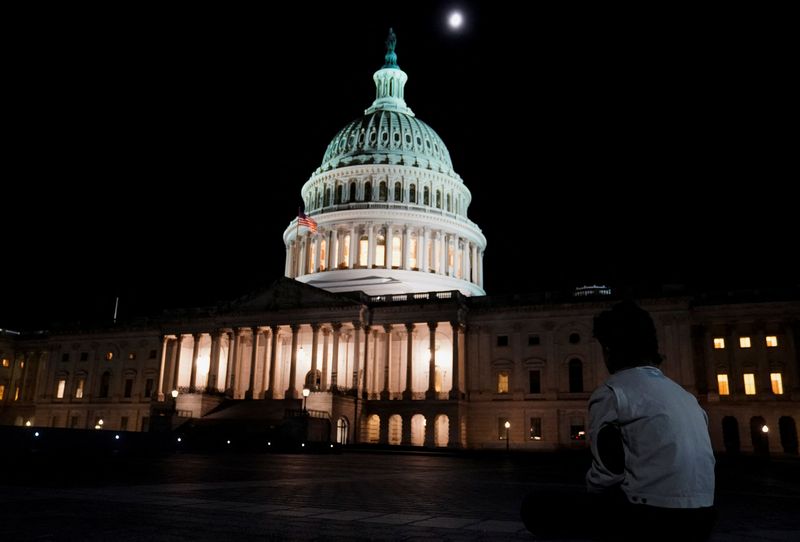By Richard Cowan
WASHINGTON (Reuters) - Democratic President Joe Biden and top congressional Republican Kevin McCarthy struck a deal on Saturday to suspend the federal government's $31.4 trillion limit on U.S. government borrowing, in order to avert a catastrophic default as soon as June 5.
Their challenge isn't over. They now have to shepherd it through the deep partisan fractures of the narrowly Republican-controlled House of Representatives and Democratic-controlled Senate:
LEGISLATIVE SAUSAGE-MAKING
Biden and House Speaker McCarthy gave a green light to the deal drafted by their respective aides during closed-door negotiations over the past several days.
It needs to be written into legislation, which McCarthy said would happen on Sunday. Then, McCarthy has vowed to give House members 72 hours to read it, and passage through the House and Senate will each take several more days.
There is little time. The Treasury Department has warned that the federal government will be unable to pay all its bills on June 5.
The top Republicans and Democrats in both chambers have already scheduled or held meetings to educate their rank-and-file about details of the bill in a bid to convince potential opponents to fall in line.
This is a key moment, as Republican and Democratic "whips" will count supporters and opponents. A revolt by the conservative House Freedom Caucus, which has plenty of sway with McCarthy, could derail the effort if its members believe the deal does not sufficiently cut spending.
Some liberal Democrats, meanwhile, could vote against the bill if they believe it cedes too much ground to Republicans.
With whip counts in hand, McCarthy will have to decide whether the bill has a strong enough chance of passing to proceed. If not, he could either not hold a vote on the bill and go back to the drawing board, or take the riskier step of sending it to the full House in the hope of eking out a win.
IN CASE OF EMERGENCY, BREAK GLASS
If things look dire at any point, the House could resort to a rarely employed emergency maneuver: A "discharge petition" to bring a "clean" debt limit increase - with no budget provisions attached - to a vote. House Democrats have backed this idea but could not succeed unless enough of the Republican majority joined them.
Biden could attempt the untested legal theory of invoking the U.S. Constitution's 14th Amendment stating that "the validity of the public debt of the United States ... shall not be questioned" and thus clear the way for him to authorize more borrowing. That would likely be challenged immediately in the courts.
HOUSE GOES FIRST
The House, which Republicans control by a narrow 222-213 majority, is expected to act first. A simple majority - at least 218 votes if all members are present - will be needed for passage.
Bipartisanship will be required as some far-right Republicans or some liberal Democrats unhappy with the outcome could vote no.
House debate and passage, including preliminary votes, could take a day or two.
SENATE FOLLOWS
If passed by the House, the legislation goes to the Senate where Democrats hold a 51-49 majority over Republicans. As in the House, a vote on passage might not break purely along party lines, as individual senators from each party could find different reasons for opposing the bill.
To pass, the measure would need the support of at least nine Republicans to clear the chamber's "filibuster" rule, which requires 60 of the 100 members to advance most legislation.
Senate consideration of the bill could take up most of a week.
Majority Leader Chuck Schumer has full control over when the bill comes up for a vote. But individual senators can slow the process by insisting on procedural maneuvers, including 30 hours of debate on whether to begin debate and another 30 hours of debate on the bill itself.
The Senate would need to pass the bill without any changes to the House measure. Otherwise it would have to go back to the House for another vote.

If there were to be a 50-50 tie in the Senate, Vice President Kamala Harris can cast the vote to win 51-50 passage.
Upon passage by the House and Senate, the deal would go to the White House for Biden to sign into law.